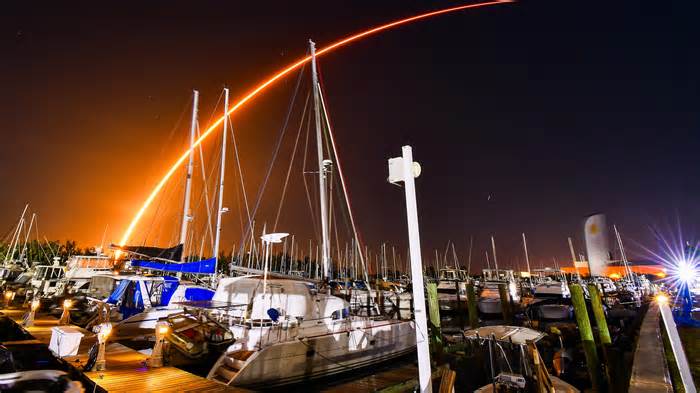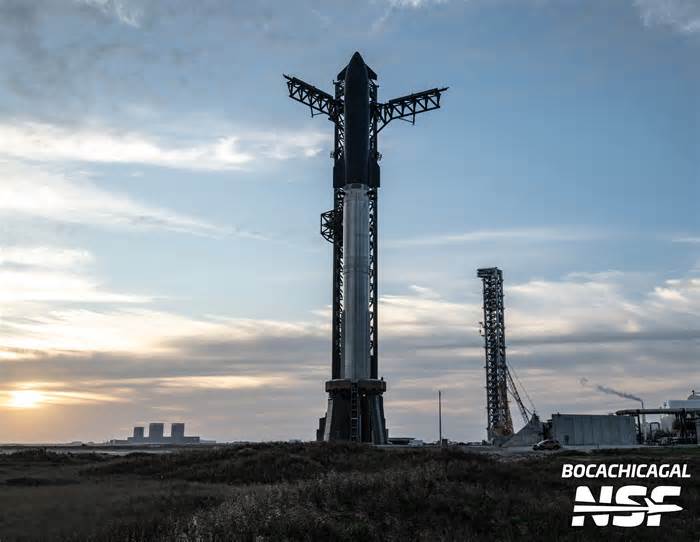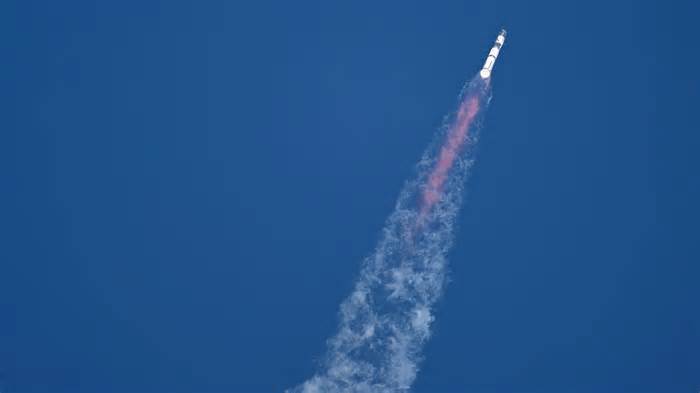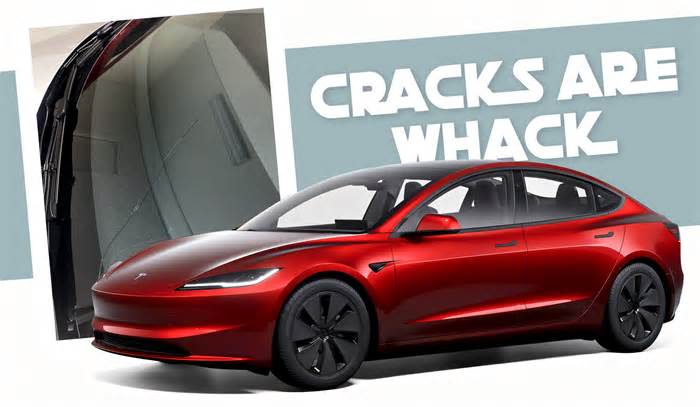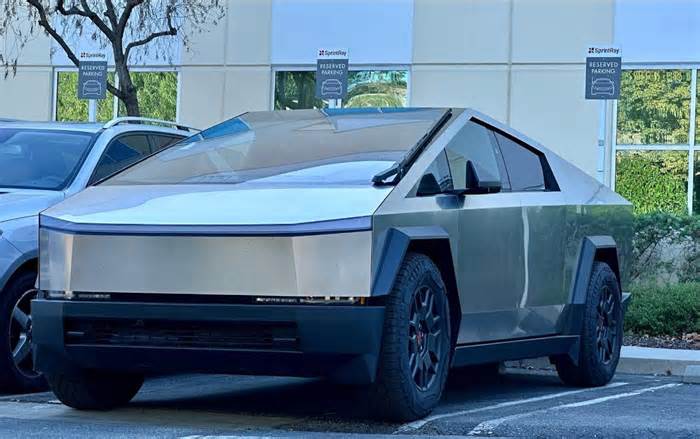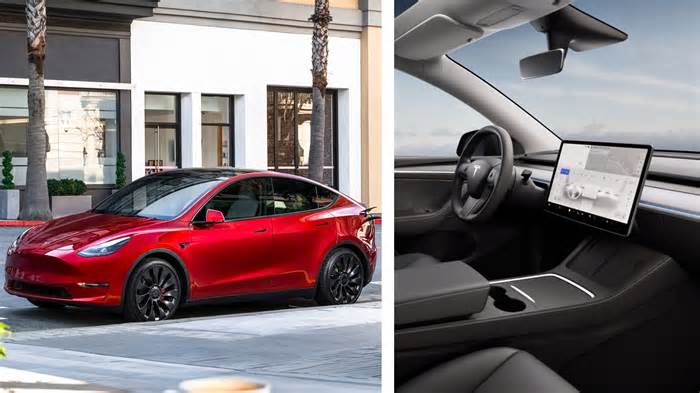
Why the Pentagon just can’t quit Elon Musk
- by Vox
- Nov 03, 2024
- 0 Comments
- 0 Likes Flag 0 Of 5

Nov 3, 2024, 11:00 AM UTC
President Donald Trump acknowledges SpaceX founder Elon Musk after the successful launch of the Falcon 9 rocket and manned Dragon spacecraft at the Kennedy Space Center in 2020 in Cape Canaveral, Florida.
Saul Martinez/Getty Images When it comes to politics, Elon Musk’s ideas are utterly, revealingly conventional.
In the near term, though, it seems very unlikely that Musk’s clearance would be revoked or his $3 billion government contracts be canceled. Whatever concerns national security officials might have about Musk, his companies — particularly SpaceX, which has come to dominate rocket launches and satellite internet — have simply become too embedded in American military operations to cut out, not least because for the moment, there are no competitors in a position to replace them.
As Joshua Ian Rosenstein, an attorney specializing in national security law, put it to Vox, Musk may now be simply “too big to fail.”
When CEOs go rogue
This is not the first time Musk’s activities have raised national security concerns. After Russia’s invasion of Ukraine in 2022, Musk activated his Starlink satellite internet network over Ukraine and donated terminals for the country’s use. Starlink, which allows users to connect to the internet via its network of satellites in areas where connectivity is low, has been vital to the Ukrainian war effort, particularly for operating the drones that have become so central to combat.
But while he initially expressed support for Ukraine and the start of the war, Musk has not always been happy about how Starlink has been used by Kyiv. In September 2022, he personally ordered the deactivation of Starlink near the coast of Crimea to prevent a Ukrainian attack, saying he wanted to avoid being complicit in a “major act of war and conflict escalation.”
A little more than half a year after the war started, Musk was posting on X that he believes Crimea, annexed by Russia in 2014, is rightfully Russian and should be formally ceded to Russia as part of an agreement to end the war. That’s a direct echo of Russian talking points, and a direct contradiction of the position of the US and virtually all Western governments. At various points, Musk’s company has threatened to withhold Starlink from use on Ukrainian drones altogether, saying the technology was never intended to be used “for offensive purposes.”
Then there’s China. Tesla’s largest factory is in China and Musk has deepened his commercial ties to the country, even as many other American companies have been pulling back amid rising geopolitical tensions. He has described himself as “kind of pro-China” and more than a few critics have noted that his frequent advocacy for unrestricted free speech does not appear to extend to the Chinese Communist Party. Musk has also suggested Taiwan ought to be turned into a “special administrative zone” under Chinese control, along the lines of Hong Kong. (Support for such a scheme in Taiwan plummeted after China’s crackdown on Hong Kong’s democracy over the past decade.)
SpaceX told Vox that Starlink is not available in Taiwan because the Taiwanese government has not given it a license to operate and that this “has nothing to do with Russia or China.”
It is true Taiwan has opted to work with one of Starlink’s smaller competitors, the UK-European company Eutelsat, to develop its own satellite backup. In a recent interview, prior to the Wall Street Journal report, Taiwan’s Deputy Minister of Digital Affairs Herming Chiueh told Vox his government was concerned that Musk “could cut the service [over] his personal opinion, so we don’t think this was a trustable partner.”
Some US lawmakers feel similarly. “The fact that a single individual has been so disdainful of our legal system, our regulatory system, and yet at the very same time so complimentary to an authoritarian system in China, concerns me greatly,” a Democratic member of Congress told reporters this week, adding, “when we think about the the amount of government contracts he has, as well as in some domains, even the potential for some classified work, it is hugely concerning.”
The member claims that while Republican China hawks had also raised concerns about Musk’s activities and interests in the past, they’ve become less apt to do so as he has grown closer to the Trump campaign.
Indeed, the prominent role Musk has taken as a backer of former President Donald Trump’s current presidential campaign only adds to the national security concerns. He’s donated tens of millions of dollars to pro-Trump super PACS, devised a possibly illegal lottery to incentivize voters in the swing state of Pennsylvania, and turned both his own X account and the platform itself into a pro-Trump megaphone. As NBC reported, this has included personally amplifying content that appears to be part of an organized Russian misinformation effort. US intelligence officials have assessed that Russia is “undertaking a whole of government approach to influence the election” and wants Trump to win. (There’s no evidence that Musk knowingly spread Russian content.)
Related:
Please first to comment
Related Post
Stay Connected
Tweets by elonmuskTo get the latest tweets please make sure you are logged in on X on this browser.
Sponsored
Popular Post
tesla Model 3 Owner Nearly Stung With $1,700 Bill For Windshield Crack After Delivery
33 ViewsDec 28 ,2024
Middle-Aged Dentist Bought a Tesla Cybertruck, Now He Gets All the Attention He Wanted
32 ViewsNov 23 ,2024






 Energy
Energy




